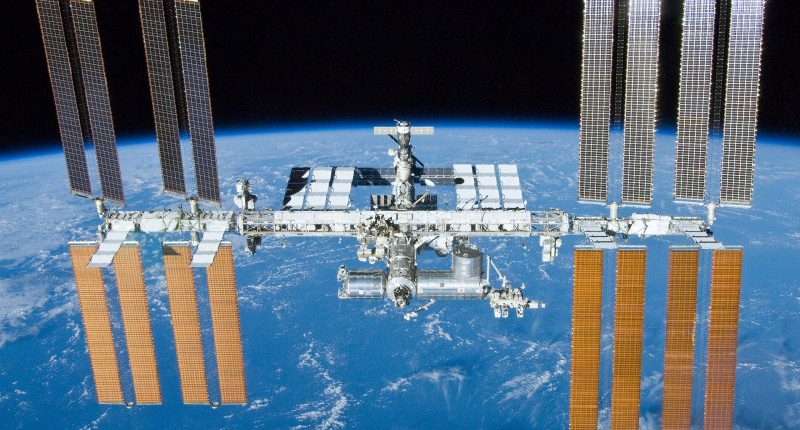For many years, the International Space Station (ISS) has been a symbol of international cooperation. In particular, it highlights the partnership between Russia and the US – two of the world’s superpowers who had been at each other’s throats for nearly four decades in a Cold War. Since then, the ISS has maintained a steady vigilance in space, and astronauts from both Russia and other countries live and work there.
Until now.
Yuri Borisov, the current head of Roscosmos (Russia’s national space agency) told president Vladimir Putin that Russia will no longer be a part of the International Space Station after 2024. Once it breaks its long orbital partnership with NASA, it will focus on building and launching its own outpost in space.
Borisov, who became the director of the Russian space agency over a week ago, told Putin that the decision to leave the ISS “has been made,” and that they were “working within the framework of international cooperation” at the ISS. Once Roscosmos has fulfilled its obligations to its partners, it will part ways with NASA and pull out of the ISS. Putin has reportedly offered his assent to the same.
This is hardly the first instance of Roscosmos threatening to leave the ISS for good, and it ties in with Borisov’s predecessor Dmitry Rogozin’s declarations of the same several times before Borisov replaced him. At that time, he wrote in a social media post, “The restoration of normal relations between the partners at the International Space Station (ISS) and other projects is possible only with full and unconditional removal of illegal sanctions.” Of course, it was all bark, no bite at that time, but such is not the case today.
The reason behind Roscosmos’ decision is a simple one – it seems to be in response to the numerous sanctions that the West has imposed on Russia owing to the latter’s invasion of Ukraine. The invasion has been ongoing for months and condemned by Western countries, while support for Ukraine has been pouring in and economic sanctions have piled up against Russia.
Roscosmos deemed that these sanctions would “destroy” Russian cooperation aboard the ISS, and Rogozin had declared to follow through with his threat unless the Western countries lifted their sanctions. Nonetheless, it adds to the rising tensions between Russia and the West, and it is hoped that things are resolved before the boiling point is reached.
Speaking of NASA, it said it is yet to receive an official statement from Russia regarding the same – administrator Bill Nelson said, “NASA has not been made aware of decisions from any of the partners, though we are continuing to build future capabilities to assure our major presence in low-Earth orbit.”
“Cooperation with the West also shows some amount of legitimacy to other non-aligned nations and to their own people which Putin needs as the war in Ukraine has damaged his credibility. The design of the ISS makes it difficult for the remaining nations to operate the ISS if either Russia or the US was to withdraw but not impossible. Also, ‘after 2024,’ is vague and open ended so I think this could be just more bluster,” said former ISS commander Scott Kelly.
The Tech Portal is published by Blue Box Media Private Limited. Our investors have no influence over our reporting. Read our full Ownership and Funding Disclosure →






